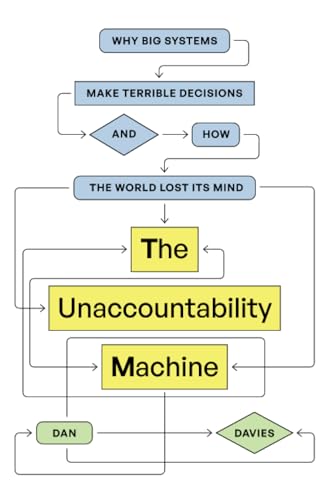
The Fifth Risk: Undoing Democracy
Book Description
What happens when the very foundation of democracy is placed in jeopardy? In "The Fifth Risk: Undoing Democracy," Michael Lewis unveils a chilling reality where critical government functions are abandoned, leaving chaos in their wake. He exposes the hidden world of federal agencies and the dedicated public servants working tirelessly against the odds, risking it all to protect the nation's future. As vital systems crumble and vital decisions hang in the balance, will anyone rise to safeguard democracy from its unseen dangers? Discover the breathtaking stakes of governance and ask yourself: what price are we willing to pay for our freedom?
Quick Book Summary
In "The Fifth Risk: Undoing Democracy," Michael Lewis delves into the obscured but critical operations of the U.S. federal government, focusing on the often-overlooked work of career civil servants. Through compelling storytelling and thorough research, Lewis explores the chaos that ensued during the Trump administration's transition, where key governmental responsibilities were neglected or misunderstood. He highlights how crucial departments like Energy, Agriculture, and Commerce are responsible for everything from nuclear safety to food security. The book reveals how political apathy and lack of understanding can jeopardize public welfare. Ultimately, Lewis argues that democracy's greatest risks lie not in what we can see, but in the vital, invisible tasks that are ignored at our peril.
Summary of Key Ideas
Table of Contents
The Invisible Value of Federal Agencies
Michael Lewis opens by revealing how the American government, a sprawling network managing everything from nuclear arsenals to weather prediction, is largely invisible to the public eye. He argues that most citizens and even new political leaders have little understanding of the vital work federal agencies conduct daily. This ignorance, Lewis warns, makes crucial systems vulnerable during times of political transition.
The Perils of Political Apathy and Mismanagement
The book's narrative pivots to the post-2016 presidential election transition, a period where incoming Trump administration officials demonstrated unfamiliarity—and sometimes disdain—for the federal agencies they were to oversee. Lewis provides vivid accounts where critical briefings were ignored or mishandled, highlighting the risks when inexperienced or uninterested appointees inherit responsibility for nation-defining programs.
The Essential Role of Dedicated Public Servants
Through personal stories, Lewis introduces readers to dedicated civil servants in agencies such as the Department of Energy, Department of Agriculture, and Department of Commerce. He illustrates their expertise and unwavering commitment, describing how they safeguard public safety, scientific advancement, and economic stability despite political headwinds and bureaucratic barriers.
Unshared Risks and Unseen Catastrophes
Lewis emphasizes the concept of “the fifth risk”—the dangers that arise not from specific threats like terrorism, but from mismanagement, indifference, and the failure to anticipate the consequences of inaction. These hidden hazards, such as the management of nuclear waste or the forecasting of hurricanes, could lead to catastrophic outcomes if not properly handled.
Consequences of Undermining Democratic Institutions
By the conclusion, Lewis asserts that the erosion of institutional knowledge and the marginalization of expertise undermine the country’s ability to respond to both present and future challenges. He argues persuasively that democracy is sustained by an army of unsung professionals and that the real threats to governance come not just from overt political battles, but from the systematic abandonment of responsibility and the devaluation of public service.
Download This Summary
Get a free PDF of this summary instantly — no email required.





